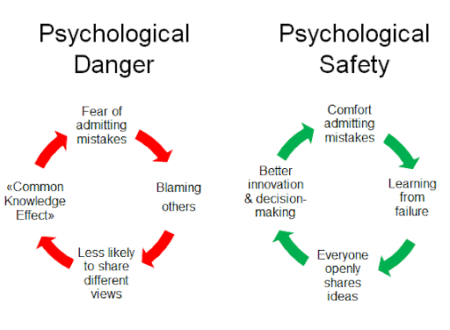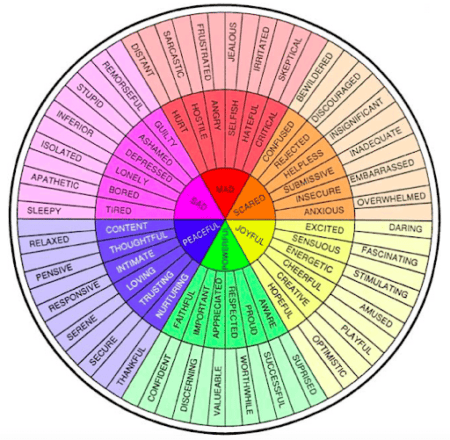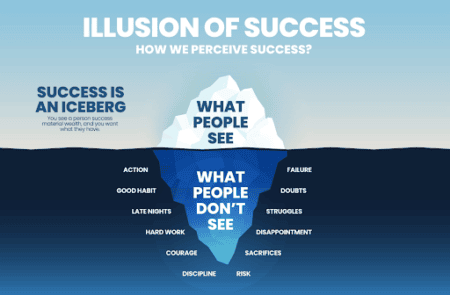
How to Manage Relationships When Things Get Tough
Relationships done well and right are the backbone for a long-lived career in sales. And as a sales leader relationships are mission-critical to what you do on a daily basis.
Think about the power of relationships for:
- Hiring
- Retention
- Team building
- The buyer journey
- Having hard conversations when things get tricky in startups
- With Founders
- Missing a quarter
- Performance management
- Partnerships
I’m a firm believer that the tone and expectations start at the top. As a sales leader, it’s your job to set the stage early and often for your team, the Founders, Board, and your colleagues. You can never lose the ‘sum of our parts’ mindset as a sales leader – it’s virtually impossible to do anything without the right people, in the right roles, and doing the right work consistently.
This quote from McKinsey captures this well:
“The people you are leading have big expectations of you. They want you to be perfect and often forget that you are human. But the more human you are with them, the more trust and empathy they lend to you.”
To be an effective leader you need to establish trust, and healthy relationships are at the foundation of that trust.
When you establish trust with your team, you become someone that they’re eager to work with and help whenever possible. And that absolutely parlays to the buyer’s journey and experience as well.

Navigating relationships – both internal and external – is key to a happy and productive team, and results that move the needle in your career and the company.
Now comes the fun part… relationships are complex. They’re not one-size-fits-all and they can be difficult, and at times, borderline maddening. When things get tough it’s important to be ready to handle those conversations with respect, an open mind, grace, humility, and honesty.
That’s how both sides end up learning and coming out better than they were before… even if you disagree. It’s amazing what this can do for you over the long-term.
Pro tip: when you disagree, don’t shut the conversation down to say, “fair enough, we’ll agree to disagree.” Instead, understand why you’re disagreeing. That’s when progress can be made to meet somewhere in the middle.
For example, I referred a VP of Sales to a consultant that I knew to help with outbound prospecting, but things fell short during their conversation. The VP of Sales I referred was put off by the consultant’s attitude and personality.
Now I could have just let this go and let both relationships run their course. Or I could take action to try to help.
I picked up the phone, asked for permission to understand further, spoke to both people in detail, made sure that I understood where they were coming from, kept an open mind, and broke it all down in a constructive manner.
Just because they didn’t hit it off, that didn’t mean my relationships with either party had to suffer. I’m proud to say both of those relationships are still intact and as healthy as ever. This is the power of real conversation – turning a potentially bad experience into a productive one for everyone involved because you genuinely care and seek to understand versus assume.
Keep your emotions in check.
One of the best lessons I’ve learned (the hard way) is that our feelings and emotions are real, they’re not wrong or right, it’s what we do with them that matters.
I’ve learned to view them as “signals” that provide an opportunity to pause, reflect, then figure out what I want to say, and how I want to say it – instead of reacting immediately and suffering for it later.
Think about it. How did you respond or feel the last time someone came at you with an aggressive, emotionally fueled approach?
Moments like these make it all too easy to fall into defense mode, tense up, shut down, or the desire to snap back. This only stirs the pot and makes things worse. There are no winners in a fight to “win” an argument.
As a sales leader, you’re expected to be the adult in the room – even if it’s uncomfortable.
When you let your emotions take over it leads to knee-jerk reactions, the inability to truly listen, and clouded reasoning that keeps you from actually solving the root of the issue in the first place.
Get to the root.
One of the best resources I’ve come across for understanding my emotions is the Feelings Wheel. Whenever I’m having a hard time putting my emotions into words or as I am venting and describing how I feel, I bust out the Feelings Wheel and take inventory.

It’s a great way to better understand how I react to things, where I’m at mentally, and an indicator of what’s really going on.
Try checking in with the Feelings Wheel before a big meeting to get clear on where you’re at. Take account of what’s really going on, your part in the situation, and how you can harness those feelings into actionable steps to make things better versus worse.
Pro tip: create an agenda before the meeting. Let the other person know what you’re coming into the meeting with and give them an opportunity to prepare. That opens the door for them to be open, honest, and prepared with you in return.
And if you leave a conversation feeling off, it’s a ripe moment for reflection, not reaction. Ask yourself questions like:
- How could I have handled that better?
- What should I look out for next time?
- What was it that triggered such a visceral reaction in me?
My approach to journaling to get clear and right with yourself on a regular basis is something I can’t recommend enough. I know it sounds cliché, but it’s a part of my secret sauce that’s been invaluable over the years.
Regardless of how you do it, checking in with yourself while paying attention to the themes regularly keeps you operating from a place of reality as opposed to getting lost in perception and judgment.
Ditch your assumptions and seek to understand.
If you haven’t read it, pick up a copy of The Four Agreements by Don Miguel Ruiz. It’s a short read that lays out a powerful, yet simple framework for living a fulfilling life.
The third agreement in the book is ‘Don’t make assumptions’, and let me tell you, this is a conversational superpower.
The greatest gift you can give someone is the benefit of the doubt. I can’t tell you how much I’ve assumed and felt like something got left behind in the end. Assuming bad intent right off the bat won’t get you anywhere and shuts you down.
Instead, come to the conversation with the mindset that you’re there to get to the root of the situation, are there to help, and a true desire to come away with a plan for progress.
To do this well:
- Own that it’s a difficult situation and start the conversation with this on the table
- Understand your part of the story
- Get clear on what’s missing
- Come with ideas and solutions
- Don’t point the finger and speak from a place of you not them
- Look for common ground
- Take notes
- Set an action plan together
If you want to be heard, the best thing you can do is listen first. Being open-minded to hear the truth of what the other person is saying BEFORE you respond is essential to having a productive conversation… even when you disagree.
That’s how you can get to the root of the matter and work together to come up with a path ahead.
Practice being clear, honest, and open.
Clarity is critical as a sales leader. The more clear you are, the more clear everyone around you can be too. It’s up to you to set the example for your team and colleagues.
This is especially relevant when interviewing salespeople. If you’re not clear in your hiring process, you’re giving them a confusing foundation to work from, which leads to confusion in your evaluation process, and confusion every step of the way after! That’s a vicious cycle nobody wants to be a part of and the epicenter of mishiring.
This is what it looks like in practice:
True story, we worked with a Founder that was suffering from some serious mishiring PTSD. One of the sales leaders interviewed didn’t show up in the way they had hoped. Instead of throwing in the towel (there were more good things than missteps, hiring scorecard anyone?), we all agreed it’d be a good idea to have another conversation specific to the topic in question.
The sales leader in question asked me how he should feel and if I were him what would I think.
My response:
“You should look at this as an opportunity to get clarity, ensure alignment, and reinforce your expertise and interest. It starts and stops with communication. There’s confusion here and it’s an excellent opportunity to potentially cut through that together… just like when you’re building a team.”
He immediately responded with, “You’re so right, I can’t wait and would love the chance to do that.”
Thank goodness for that second shot, he’s their newly minted VP of Sales and is doing better than they ever imagined!
The moral of the story is twofold:
- If you’re confused or something seems off, let them know and ask for clarity.
- When you’re clear, open, and honest it opens the door for everyone you interact with to be the same with you. This stuff is magnetic.
Like attracts like. People will be much more comfortable coming to you with honest feedback and suggestions – even when it’s hard to say and hard to hear. More times than not, this is the “stuff” that can have the most positive impact.
The more your team feels like they can contribute, the more aligned you’ll be, and the satisfied they’ll be in their roles. This is when you defy the turnover odds.
From all of the data I’ve collected at ATP over the last 6.5 years, these are two reasons in the top 5 why people stay and why people go:
- Excellent leadership
- Having a voice
Having a business conversation is a skill that you can and should practice to master.
Especially when it’s time to challenge the person you’re sitting across from to solve problems. Being able to do that with grace is where the magic happens.
The faster you can lean into this skill in your career, the more rewarding it will be.
You can’t salvage every relationship.
As much as I’d like to say it’s possible, the world isn’t perfect and not all relationships are meant to be fruitful. Sometimes we hit the point of no return or things are simply too toxic and it’s time to move on.
These are some of the hardest moments. And why clarity and honesty with ourselves is key.
Once the realization sinks in that it’s time to head in a different direction, don’t ghost the other person. It’s still important to have an open conversation with an exit plan. Remember, it’s a big, small world and you never know where your paths will cross again.
Be professional, embrace feedback, and keep those emotions at bay. Try to look at it as an opportunity for learning and growth for both sides.
Wrapping Up
Success isn’t a straight line that keeps going up, up, and up. There are bound to be difficult moments that challenge you along the way.

How you navigate those difficult situations in life and business is a skill that can be practiced and developed.
All of this is like working to get a muscle in shape. If you put the effort in to improve your self-reflection capacity and conversation skills, you’ll only get better with time. And like anything worthwhile, it takes time and practice. I promise, it will pay off, and won’t be long before you start to see how much impact this can have on the people around you.
Every relationship is an opportunity for growth.
